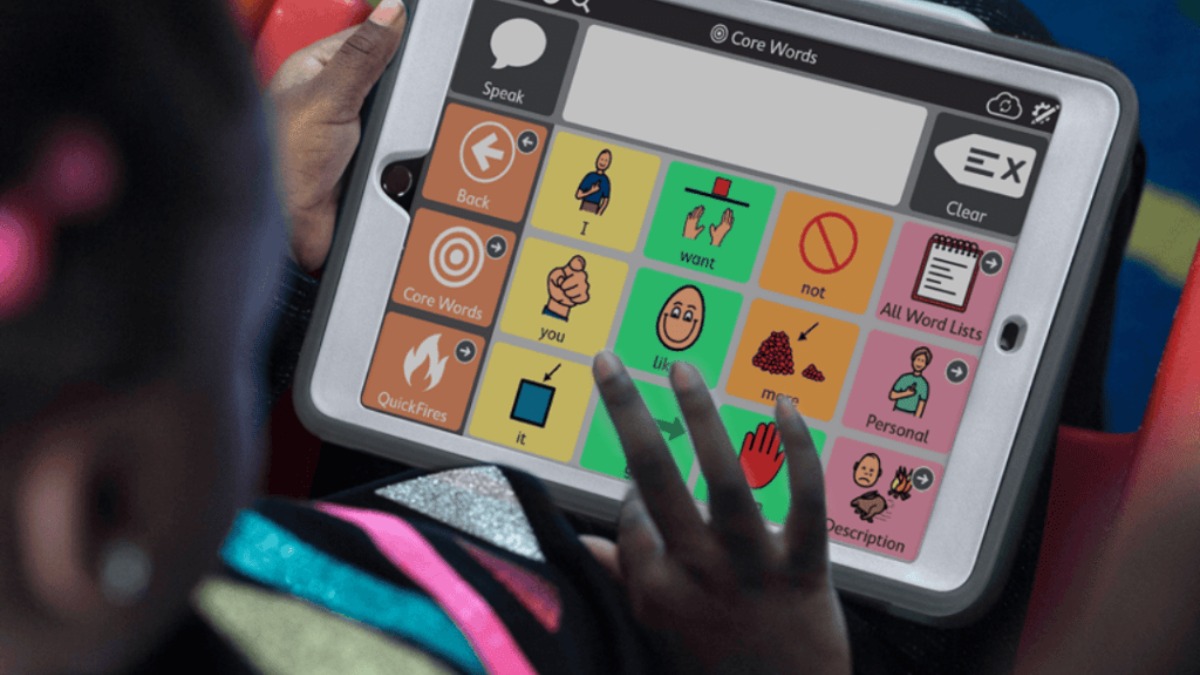DIRFloortime Evidence-Based Child Therapy
November 25, 2024
Discover DIRFloortime evidence-based child therapy to boost emotional and cognitive growth for children with autism.

Understanding DIRFloortime
DIRFloortime is an effective therapy approach aimed at supporting children with autism through meaningful interactions and developmentally appropriate practices.
Basics of DIRFloortime
DIRFloortime, also known as Floortime therapy, was developed in the 1980s by Dr. Stanley Greenspan and Dr. Serena Wieder. This relationship-based therapy is designed to promote development and interaction in children with autism through play. The therapy encourages caregivers to engage with children on the floor to facilitate meaningful connections and growth in skills necessary for social and emotional development. This hands-on approach allows children to express themselves freely, fostering an environment in which they feel safe, understood, and supported [1].
Principles of DIRFloortime
DIRFloortime is built on three fundamental components represented by the acronym "DIR":
ComponentDescriptionDevelopmentThe "D" emphasizes understanding development through the individual child's perspective, acknowledging their current state and future potential.Individual DifferencesThe "I" focuses on the unique ways each child interprets and interacts with the world around them, tailoring approaches to fit these individual styles.RelationshipsThe "R" highlights the importance of emotional connections in development, suggesting that positive relationships are essential for fostering growth and learning [2].
By adhering to these principles, DIRFloortime aims to enhance emotional regulation and promote developmental growth, making it a vital resource for parents and caregivers seeking effective interventions for children with autism. For further insights, explore our articles on DIR Floortime family-centered intervention and DIR Floortime emotional regulation strategies.
Benefits of DIRFloortime
DIRFloortime offers significant benefits in both emotional development and cognitive growth for children, particularly those on the autism spectrum. By focusing on a child's interests and fostering a nurturing environment, it promotes healthy development in a holistic manner.
Emotional Development
One of the primary advantages of DIRFloortime is its positive effect on emotional development. This therapeutic approach emphasizes building meaningful relationships and a secure emotional foundation. By engaging in play that aligns with a child's natural interests, caregivers foster an environment where emotional regulation and social skills can flourish.
Emotional Development BenefitsDescriptionEnhanced Emotional RegulationChildren learn to identify and manage their emotions through empathetic interactions.Improved Social ConnectionsEngaging with peers and adults helps children develop essential social skills.Increased MotivationFocusing on a child's interests boosts motivation and supports emotional investment in activities.
Research indicates that this model not only promotes engagement but also leads to significant strides in emotional capacities over time. DIR Floortime emotional regulation strategies can enhance techniques that effectively cultivate emotional understanding and expression.
Cognitive Growth
In addition to emotional benefits, DIRFloortime is also instrumental in cognitive growth. It encourages critical thinking and problem-solving skills through interactive play, allowing children to explore concepts in a supportive setting. By adapting the therapy to meet the unique developmental milestones of each child, caregivers can help facilitate cognitive advancements that align with their individual learning styles.
Cognitive Growth BenefitsDescriptionPromoted Critical ThinkingPlay-based activities challenge children to solve problems independently.Enhanced CommunicationOpportunities for verbal interactions improve language and communication skills.Customized Learning ExperienceSessions are tailored to individual needs, ensuring developmental milestones are met.
Research studies have demonstrated the effectiveness of DIRFloortime in building cognitive skills, particularly in enhancing social communication among children with autism. These improvements have been shown to be statistically significant when compared to traditional behavioral approaches since multiple randomized-controlled studies started in 2011.
By understanding the extensive benefits of DIRFloortime in both emotional and cognitive realms, parents and caregivers can better appreciate its significance as a family-centered intervention for their children’s overall development.
Research on DIRFloortime
The effectiveness of DIRFloortime as an evidence-based child therapy is supported by various studies and case evaluations. Research highlights its positive impact on children with autism, showcasing substantial benefits across emotional and cognitive domains.
Studies Supporting Effectiveness
Multiple randomized-controlled studies conducted since 2011 have demonstrated that DIRFloortime therapy leads to notable improvements in emotional functioning and cognitive challenges in children diagnosed with autism spectrum disorders. These studies consistently show that children undergoing DIRFloortime exhibit greater progress compared to those receiving traditional behavioral interventions. Key findings from these studies include:
Study YearSample SizeImprovement AreasResults2011200Emotional DevelopmentSignificant gains in emotional regulation2015150Cognitive FunctioningEnhanced cognitive abilities and problem-solving skills2019100Social InteractionsImproved social engagement and communication skills
The DIR Model emphasizes building healthy foundations for social, emotional, and intellectual development rather than merely concentrating on skills and isolated behaviors. The therapy fosters a nurturing environment where a child’s interests drive engagement during interactive play.
Pilot Programs and Case Studies
Pilot programs and individual case studies further support the efficacy of DIRFloortime. These initiatives provide practical evidence of how the therapy can be tailored to meet the diverse needs of children with autism. Reports from these programs have highlighted successful implementation strategies and positive outcomes.
Examples of successful case studies include:
These findings substantiate DIRFloortime's role as a valid and impactful therapeutic approach, integrating elements of play, engagement, and emotional connection. Through its individualized treatment approach, DIRFloortime addresses the unique developmental milestones of each child, leading to more personalized and effective outcomes.
For parents and caregivers seeking to support emotional regulation, further strategies can be explored in our section on DIR Floortime emotional regulation strategies.
Implementation of DIRFloortime
Parental Involvement
Parental engagement plays a crucial role in the success of DIRFloortime therapy. Studies indicate that as parents participate actively in therapy sessions, children demonstrate better outcomes in various areas of functioning [3]. Effective implementation involves fostering a nurturing environment where a child’s natural interests guide interactive play, leading to engagement and developmental progress.
The interaction during floortime therapy encourages children to express themselves, bolstering their communication skills and emotional connections. The more parents engage during these sessions, the stronger the positive impact on their child's overall development. This child-centered approach enriches familial bonds and fosters a supportive atmosphere for growth.
Level of Parental InvolvementExpected Child ImprovementLow EngagementMinimal DevelopmentModerate EngagementNoticeable ProgressHigh EngagementSignificant Improvement
For further insight into how DIRFloortime can foster family connections, refer to our article on DIR floortime family-centered intervention.
Cost Considerations
When evaluating DIRFloortime as a viable intervention for children with autism, understanding the associated costs is essential. On average, a DIRFloortime-based weekly intervention program costs approximately $5,000 per child per year. This is significantly lower than most therapist-delivered programs that generally offer 20–30 hours of treatment weekly [4].
This cost-effective approach allows families greater access to individualized treatment while still gaining the beneficial outcomes associated with consistent DIRFloortime sessions. In contrast to traditional therapy models, DIRFloortime provides a structured yet flexible method of support catered to each child's unique journey.
For a deeper understanding of how this individualized approach can contribute to a child’s milestones and emotional regulation, explore our sections on DIR floortime developmental milestones and DIR floortime emotional regulation strategies.
The investments parents make into DIRFloortime can lead to long-lasting effects on communication skills and emotional connections within families, as supported by various case studies highlighting the approach’s effectiveness [4].
Comparison with Other Interventions
When evaluating the effectiveness of DIRFloortime as an evidence-based child therapy, it is essential to compare it with other common interventions used with children with autism. Two major categories of interventions are behavioral approaches and developmental interventions.
Behavioral Approaches
Behavioral interventions, grounded in operant learning theory, focus on modifying specific behaviors through reinforcement and consequences. Common methods within this category include Early Intensive Behavioral Intervention (EIBI), Discrete Trial Training (DTT), Picture Exchange Communication System (PECS), and Positive Behavioral Supports (PBS) [5].
These approaches have shown promise in improving cognitive and academic outcomes for children with Autism Spectrum Disorder (ASD). They utilize structured and often intensive sessions to target particular skills, such as social communication, self-management, and academic learning.
Intervention TypeFocusKey MethodsOutcomesBehavioral ApproachesBehavior modificationEIBI, DTT, PECS, PBSImproved cognitive and academic skills
Developmental Interventions
In contrast, developmental interventions, such as DIRFloortime, prioritize enhancing social communication skills through parent-child or child-child interactions. These interventions aim to address deficits in social communication by fostering emotional and relational processes. The focus is on promoting social engagement and connections, which in turn may lead to improvements in related developmental skills [5].
DIRFloortime is notable for its emphasis on individualized treatment approaches, allowing for tailored interactions based on the child's unique developmental milestones. This family-centered method supports emotional regulation and enhances natural interactions, which can lead to more meaningful social connections.
Intervention TypeFocusKey MethodsOutcomesDevelopmental InterventionsEmotional and social growthDIRFloortimeEnhanced social communication skills
Comparing these approaches, DIRFloortime and other developmental interventions prioritize emotional relationships and social engagement, while behavioral approaches focus more on specific behavior changes and skill acquisition. Parents and caregivers may consider these distinct methods based on their child's individual needs and developmental progress. For more information on the individualized nature of DIRFloortime, explore our content on DIR floortime individualized treatment approach and DIR floortime emotional regulation strategies.
Future of DIRFloortime
The future of DIRFloortime therapy holds considerable promise as ongoing research continues to explore its effectiveness and adaptability in child therapy. This evidence-based approach emphasizes building upon children's strengths and improving emotional and social communication through play.
Ongoing Research
Current studies are focusing on various aspects of DIRFloortime, including its impact on social communication skills and engagement among children with autism. Recent randomized-controlled trials have indicated statistically significant improvements in children's abilities compared to traditional behavioral approaches. For instance, systematic reviews have highlighted substantial progress in emotive functioning, communication, daily living skills, and parent-child interactions as a result of Floortime therapy NCBI.
Furthermore, case studies demonstrate enhancements in communication between parents and children through the implementation of DIRFloortime. Researchers are particularly noting how parental involvement can amplify these benefits. Parents act as co-therapists, helping to generalize skills learned during play to everyday interactions Wondirful Play.
Aspect of ResearchFocus AreaNotable FindingsSocial Communication SkillsEngagement LevelsIncreased social interactions in therapyParental InvolvementCo-therapy RoleImproved generalization of skills to everyday lifeChild DevelopmentDaily Living SkillsEnhanced emotive functioning and adaptive behavior
Potential Impact
As DIRFloortime therapy is further validated through research, its potential impact on the field of child therapy could be significant. The focus on a relationship-based approach encourages emotional growth and cognitive development. Parents actively participating in therapy foster a nurturing environment, allowing their children to flourish.
The emphasis on tailored treatment ensures that each child's individual differences are acknowledged, promoting better outcomes. If research continues to support its efficacy, DIRFloortime could become a mainstay in therapeutic practices for children with autism. It aligns seamlessly with emerging thoughts in psychology and education regarding inclusive and family-centered approaches. For more in-depth information on how this intervention supports child development, please refer to our article on DIRFloortime family-centered intervention and DIRFloortime individualized treatment approach.
By focusing on ongoing research and the potential for future improvements, DIRFloortime stands as a compelling option for parents and caregivers seeking effective therapies for children with autism. Being aware of these developments can help families make informed decisions regarding interventions that best suit their children's unique needs.
We at Wondirful Play specialize in DIR Floortime therapy in New Jersey, offering personalized sessions that meet each child where they are and encourage them to flourish in their unique way. Our experienced therapists offer personalized DIR Floortime services tailored to your child's unique needs, helping them grow emotionally, socially, and cognitively. Contact us today to learn more!
References
[2]:
[3]:
[4]:
[5]:
Recent articles













.jpg)


.jpg)






.jpg)











.jpg)
.jpg)

.jpg)
.jpg)
.jpg)



.jpg)
.jpg)
.jpg)

.jpg)
.jpg)

.jpg)



.jpg)


.jpg)
%20(1).jpg)

.jpg)






.jpeg)








.jpg)
.jpg)
.jpg)
.jpg)
.jpg)


.jpg)
.jpg)
.jpg)
.jpg)
.jpg)
.jpg)
.jpg)
.jpg)
.jpg)
.jpg)
.jpg)
.jpg)
.jpg)
.jpg)
.jpg)
.jpg)
.jpg)
.jpg)
.jpg)
